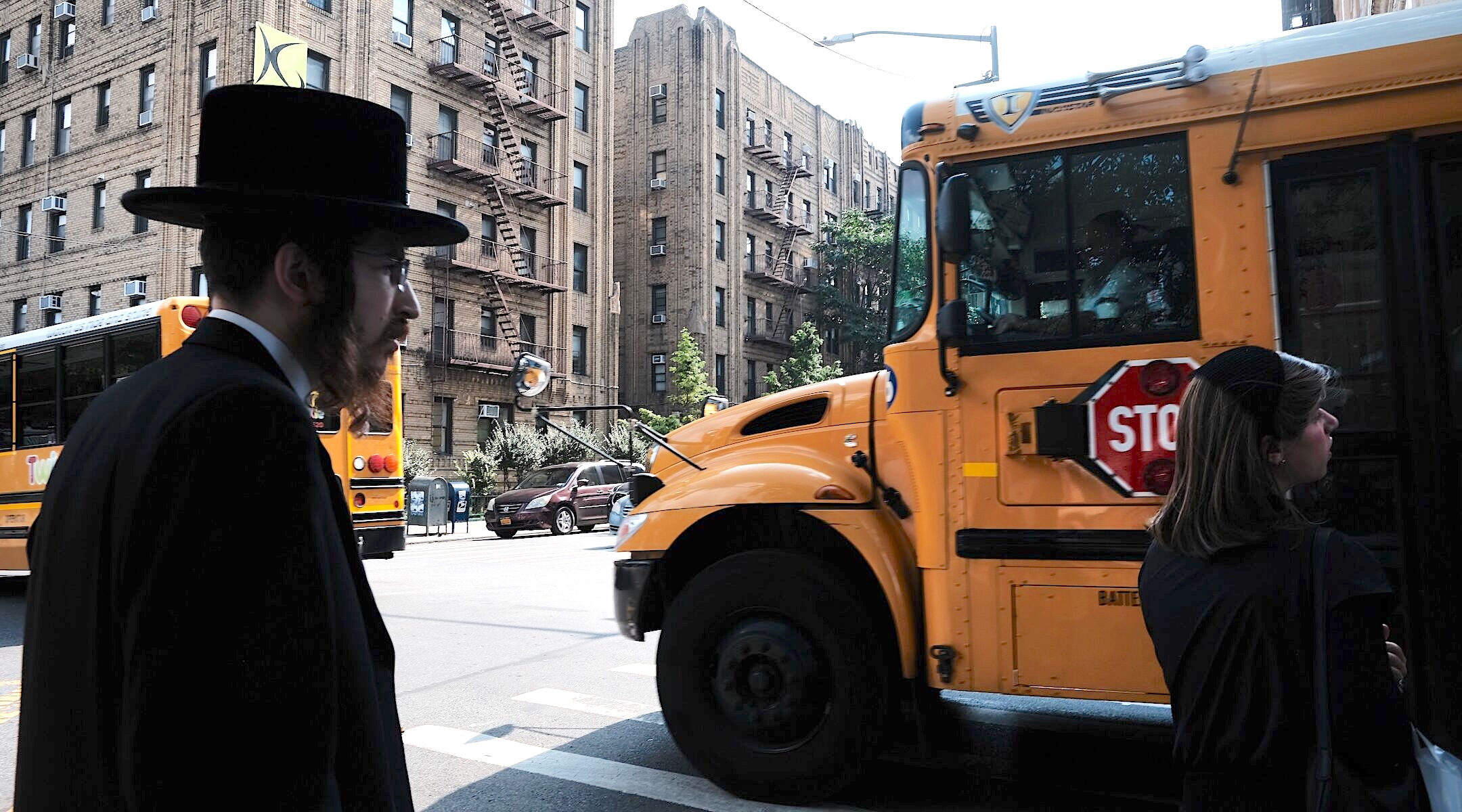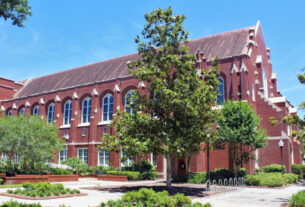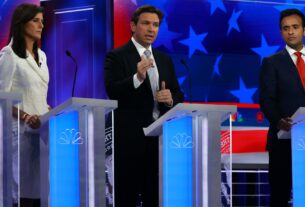The New York State Education Department is cutting off public funding to two Brooklyn yeshivas and ordering parents to find alternative educational arrangements for their children next year, citing the schools’ failure to meet secular education standards.
It’s the most significant set of consequences faced by any school in the ongoing fight between education officials and Hasidic institutions in New York over laws requiring that yeshivas, like all schools, meet standards in core subjects like English and math. After years of battles in court, the halls of government and the public square, this is the first time the state has effectively closed a Hasidic school.
The two yeshivas are in Williamsburg, the center of the city’s Satmar Hasidic community. They are Yeshiva Bnei Shimon Yisroel of Sopron, which runs schools in two locations for different age groups, and Talmud Torah of Kasho. They were notified of the enforcement decisions on Feb. 11 after ignoring final warnings issued in December, according to the education department.
By July 1, parents must find “a different, appropriate education setting” for their children and report their choice to authorities, according to a letter template that the Department of Education provided to the yeshivas for distribution. Three options were listed: a different religious school, a public school or homeschooling.
The letter template, which also came in Yiddish translation, notes that the yeshivas will not receive public funds for child nutrition programs, transportation, textbooks or other services after June 30.
Talmud Torah of Kasho did not return a request for comment. Rosa Friedman, the principal of Yeshiva Bnei Shimon Yisroel of Sopron, said in a reply to an email from the Jewish Telegraphic Agency, “We are not doing anything illegal.” She did not respond to follow-up questions.
The dispute dates back a decade, when a group of yeshiva graduates reported to government authorities that their education had focused almost exclusively on religious instruction, leaving them unprepared for adulthood. The complaints led to investigations into dozens of yeshivas, as well as a high-profile series of articles in the New York Times on allegations of subpar education standards at New York yeshivas.
Following the Times investigation, in 2023, education officials found that 18 schools were failing to provide an education “substantially equivalent” to that offered in public schools, representing a small fraction of the yeshivas in the city. Most agreed to a remediation process — except for the two now facing penalties.
Haredi Orthodox leaders have long characterized government enforcement of secular standards as an attack on their community and an encroachment on their right to raise their children according to religious traditions, while defending their education system as rigorous and superior, overall, to what’s offered by public schools.
Several advocacy groups that typically defend yeshiva education in the media did not respond to requests for comment or declined to say anything about the case.
Meanwhile, secular education advocates, many of whom were raised in haredi families and attended yeshivas, have pressured the state to act. One of the leading groups behind the effort is Young Advocates for Fair Education, or YAFFED, which informed (JEWISH REVIEW) and other media outlets about the enforcement notices after a private briefing with the education department.
“These letters are an unprecedented and long-overdue action to ensure that all children receive the education they are entitled to under New York State law,” Adina Mermelstein Konikoff, the executive director of YAFFED, said in a statement. “Children in these schools are denied a basic education, receiving little to no instruction in secular subjects, leaving them unprepared for life after graduation.”
Yeshiva education has become a salient issue in New York politics, and may rise in prominence as the city heads toward June’s Democratic mayoral primary, in which Hasidic voters could be a significant factor. And the state’s decision comes as Mayor Eric Adams faces mounting calls to resign over his indictment for corruption, which the Trump administration is seeking to dismiss.
Adams has defended yeshiva education in the past. In 2023, he said yeshivas “are providing a quality education that is embracing our children,” and called on other schools to “learn what you are doing in the yeshivas to improve education.”
One of the candidates challenging him, by contrast, Comptroller Brad Lander, said in 2021 regarding yeshivas that all schools “have an obligation to deliver substantially comparable and competent secular education, especially where the city is contracting with those schools for transportation and books.”
The government’s authority to order parents to withdraw their children from noncompliant schools is being challenged in court by Parents for Educational and Religious Liberty in Schools, or PEARLS, a yeshiva advocacy group. In 2023, a trial court ruled that the state had overstepped its authority, but an appeals court overturned the decision. The case is now set for review by New York’s highest court.
PEARLS did not respond to a request for comment on the state education department’s order.
Separately, a week before the new Trump administration took office, PEARLS filed a federal discrimination complaint against city and state education agencies on behalf of four yeshivas. The complaint outlines a series of actions by the agencies that allegedly interfere with the schools’ autonomy in curriculum and hiring.
“Taken together, these discriminatory practices would strip the Yeshivas of their essential Jewish character,” the complaint says.
The U.S. Department of Education’s civil rights office has yet to announce an investigation into the allegations in the complaints, but the Trump administration previously stated that it would prioritize both religious liberty protections and combating antisemitism in its education policies.




